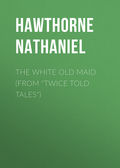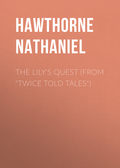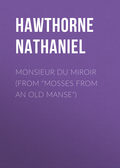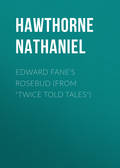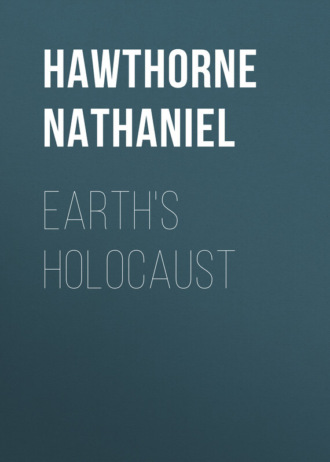
Натаниель Готорн
Earth's Holocaust
“The smell of singed garments is quite intolerable here,” observed my new acquaintance, as the breeze enveloped us in the smoke of a royal wardrobe. “Let us get to windward and see what they are doing on the other side of the bonfire.”
We accordingly passed around, and were just in time to witness the arrival of a vast procession of Washingtonians, – as the votaries of temperance call themselves nowadays, – accompanied by thousands of the Irish disciples of Father Mathew, with that great apostle at their head. They brought a rich contribution to the bonfire, being nothing less than all the hogsheads and barrels of liquor in the world, which they rolled before them across the prairie.
“Now, my children,” cried Father Mathew, when they reached the verge of the fire, “one shove more, and the work is done. And now let us stand off and see Satan deal with his own liquor.”
Accordingly, having placed their wooden vessels within reach of the flames, the procession stood off at a safe distance, and soon beheld them burst into a blaze that reached the clouds and threatened to set the sky itself on fire. And well it might; for here was the whole world’s stock of spirituous liquors, which, instead of kindling a frenzied light in the eyes of individual topers as of yore, soared upwards with a bewildering gleam that startled all mankind. It was the aggregate of that fierce fire which would otherwise have scorched the hearts of millions. Meantime numberless bottles of precious wine were flung into the blaze, which lapped up the contents as if it loved them, and grew, like other drunkards, the merrier and fiercer for what it quaffed. Never again will the insatiable thirst of the fire-fiend be so pampered. Here were the treasures of famous bon vivants, – liquors that had been tossed on ocean, and mellowed in the sun, and hoarded long in the recesses of the earth, – the pale, the gold, the ruddy juice of whatever vineyards were most delicate, – the entire vintage of Tokay, – all mingling in one stream with the vile fluids of the common pot house, and contributing to heighten the self-same blaze. And while it rose in a gigantic spire that seemed to wave against the arch of the firmament and combine itself with the light of stars, the multitude gave a shout as if the broad earth were exulting in its deliverance from the curse of ages.
But the joy was not universal. Many deemed that human life would be gloomier than ever when that brief illumination should sink down. While the reformers were at work I overheard muttered expostulations from several respectable gentlemen with red noses and wearing gouty shoes; and a ragged worthy, whose face looked like a hearth where the fire is burned out, now expressed his discontent more openly and boldly.
“What is this world good for,” said the last toper, “now that we can never be jolly any more? What is to comfort the poor man in sorrow and perplexity? How is he to keep his heart warm against the cold winds of this cheerless earth? And what do you propose to give him in exchange for the solace that you take away? How are old friends to sit together by the fireside without a cheerful glass between them? A plague upon your reformation! It is a sad world, a cold world, a selfish world, a low world, not worth an honest fellow’s living in, now that good fellowship is gone forever!”
This harangue excited great mirth among the bystanders; but, preposterous as was the sentiment, I could not help commiserating the forlorn condition of the last toper, whose boon companions had dwindled away from his side, leaving the poor fellow without a soul to countenance him in sipping his liquor, nor indeed any liquor to sip. Not that this was quite the true state of the case; for I had observed him at a critical moment filch a bottle of fourth-proof brandy that fell beside the bonfire and hide it in his pocket.
The spirituous and fermented liquors being thus disposed of, the zeal of the reformers next induced them to replenish the fire with all the boxes of tea and bags of coffee in the world. And now came the planters of Virginia, bringing their crops of tobacco. These, being cast upon the heap of inutility, aggregated it to the size of a mountain, and incensed the atmosphere with such potent fragrance that methought we should never draw pure breath again. The present sacrifice seemed to startle the lovers of the weed more than any that they had hitherto witnessed.
“Well, they’ve put my pipe out,” said an old gentleman, flinging it into the flames in a pet. “What is this world coming to? Everything rich and racy – all the spice of life – is to be condemned as useless. Now that they have kindled the bonfire, if these nonsensical reformers would fling themselves into it, all would be well enough!”
“Be patient,” responded a stanch conservative; “it will come to that in the end. They will first fling us in, and finally themselves.”
From the general and systematic measures of reform I now turn to consider the individual contributions to this memorable bonfire. In many instances these were of a very amusing character. One poor fellow threw in his empty purse, and another a bundle of counterfeit or insolvable bank-notes. Fashionable ladies threw in their last season’s bonnets, together with heaps of ribbons, yellow lace, and much other half-worn milliner’s ware, all of which proved even more evanescent in the fire than it had been in the fashion. A multitude of lovers of both sexes – discarded maids or bachelors and couples mutually weary of one another – tossed in bundles of perfumed letters and enamored sonnets. A hack politician, being deprived of bread by the loss of office, threw in his teeth, which happened to be false ones. The Rev. Sydney Smith – having voyaged across the Atlantic for that sole purpose – came up to the bonfire with a bitter grin and threw in certain repudiated bonds, fortified though they were with the broad seal of a sovereign state. A little boy of five years old, in the premature manliness of the present epoch, threw in his playthings; a college graduate, his diploma; an apothecary, ruined by the spread of homeopathy, his whole stock of drugs and medicines; a physician, his library; a parson, his old sermons; and a fine gentleman of the old school, his code of manners, which he had formerly written down for the benefit of the next generation. A widow, resolving on a second marriage, slyly threw in her dead husband’s miniature. A young man, jilted by his mistress, would willingly have flung his own desperate heart into the flames, but could find no means to wrench it out of his bosom. An American author, whose works were neglected by the public, threw his pen and paper into the bonfire and betook himself to some less discouraging occupation. It somewhat startled me to overhear a number of ladies, highly respectable in appearance, proposing to fling their gowns and petticoats into the flames, and assume the garb, together with the manners, duties, offices, and responsibilities, of the opposite sex.
What favor was accorded to this scheme I am unable to say, my attention being suddenly drawn to a poor, deceived, and half-delirious girl, who, exclaiming that she was the most worthless thing alive or dead, attempted to cast herself into the fire amid all that wrecked and broken trumpery of the world. A good man, however, ran to her rescue.
“Patience, my poor girl!” said he, as he drew her back from the fierce embrace of the destroying angel. “Be patient, and abide Heaven’s will. So long as you possess a living soul, all may be restored to its first freshness. These things of matter and creations of human fantasy are fit for nothing but to be burned when once they have had their day; but your day is eternity!”
“Yes,” said the wretched girl, whose frenzy seemed now to have sunk down into deep despondency, “yes, and the sunshine is blotted out of it!”



